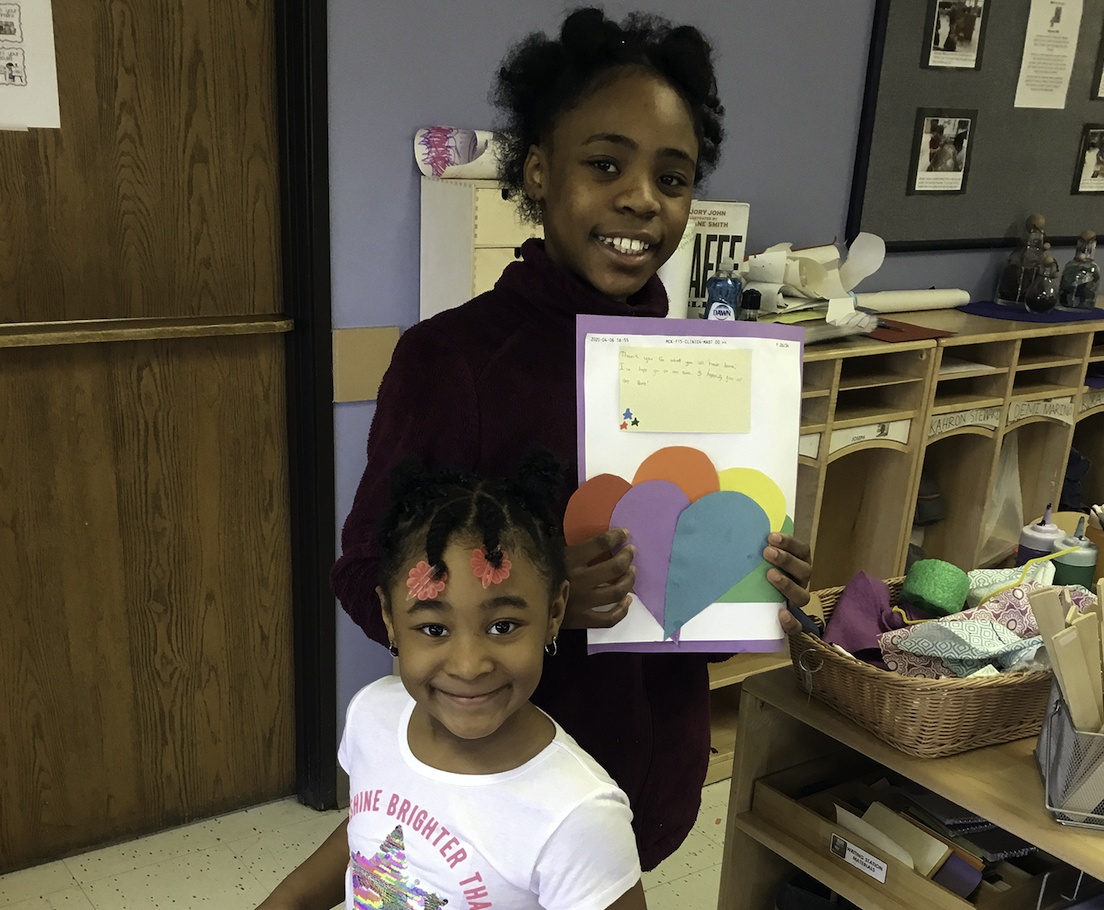Conceived by Harvard T.H. Chan School of Public Health, Thrive Global, and the CAA Foundation, #FirstRespondersFirst is an initiative created to provide first responder healthcare workers, ranging from minimum-wage hourly workers in home care settings to social workers, nurses, physicians, and beyond, with physical and psychological resources they so desperately need as they serve on the frontlines of the COVID-19 pandemic. Through their partnership with #FirstRespondersFirst, Bright Horizons is offering free child care for the children of first responders, enabling this workforce to have peace-of-mind to focus on their critical jobs. The centers have special COVID-19 protocols in place, including limited capacity and small group sizes, enhanced teacher-to-child ratios, and intensive hygiene and cleaning practices to protect the health and safety of the children and staff. The centers will be staffed with expertly trained and experienced local Bright Horizons early educators, and available for children ages infants through 6 years old.
In the current situation, there’s a lot we can do to help healthcare workers and first responders who are showing up to work and are on the front lines of the coronavirus crisis. That’s why Bright Horizons’ #FirstRespondersFirst child care hubs are so key — they have made it possible for these essential workers to perform their important duties, without worrying about their child’s care, safety, or well-being. Meet some of the families finding solace through this initiative, and hear about the impact it’s having on their lives.
Jennifer Rabjohns, an E.R. doctor at George Washington University Hospital, and her husband, Eric, an analyst, have three kids: a son, Jefferson, and infant twins, Alexandria and Benjamin. Having access to the child care center allows the Rabjohns to work with peace of mind — and the knowledge that their kids are having fun.

Boyd Malphrus, Physician’s Assistant at Duke University Medical Center
“My husband and I are completely indebted to this program. My effectiveness at work would have suffered tremendously if it weren’t for the Bright Horizons center. I wouldn’t have been able to see as many patients or help kids in the community who need us right now. I have been so encouraged by the support we’ve gotten through the #FirstRespondersFirst program.”
Kenya Ford, Supervisor, U.S. Postal Service
“Without the #FirstRespondersFirst’ Bright Horizons center my job would have been in jeopardy. If I don’t go to work, I do not get paid. This puts my mind at ease because I can go to work every day and put the customers first because I know that I have someone to take care of my child during this pandemic. It has been a blessing.”
Erin Buczek, Surgeon at U.A.B. Health System
“You have no idea how much this has meant to my family. Throughout this time I have been working as much or more than I did before the pandemic and it’s been quite stressful. Getting to have quality, reliable child care while I have to work has been absolutely valuable.”
Eric Brolley, Registered Nurse at Fresenius Kidney Care
“My patient population is one of the most vulnerable populations — elderly with some degree of immunosuppression. If these patients do not receive their dialysis, they either overwhelm the hospitals or endanger their own lives. Without the ability to attend work, patients would be exposed to safety issues with understaffing and have to go to the hospital where they could potentially contract the virus or prevent a patient with the virus from receiving the care they need. I feel much less stress and relief knowing that our children are well cared for and thriving in this environment. My kids, specifically my oldest, really needed the structure of a child care facility and to be with other kids. Nothing can replace the peace of mind that they are happy, excited to learn and to interact again.”
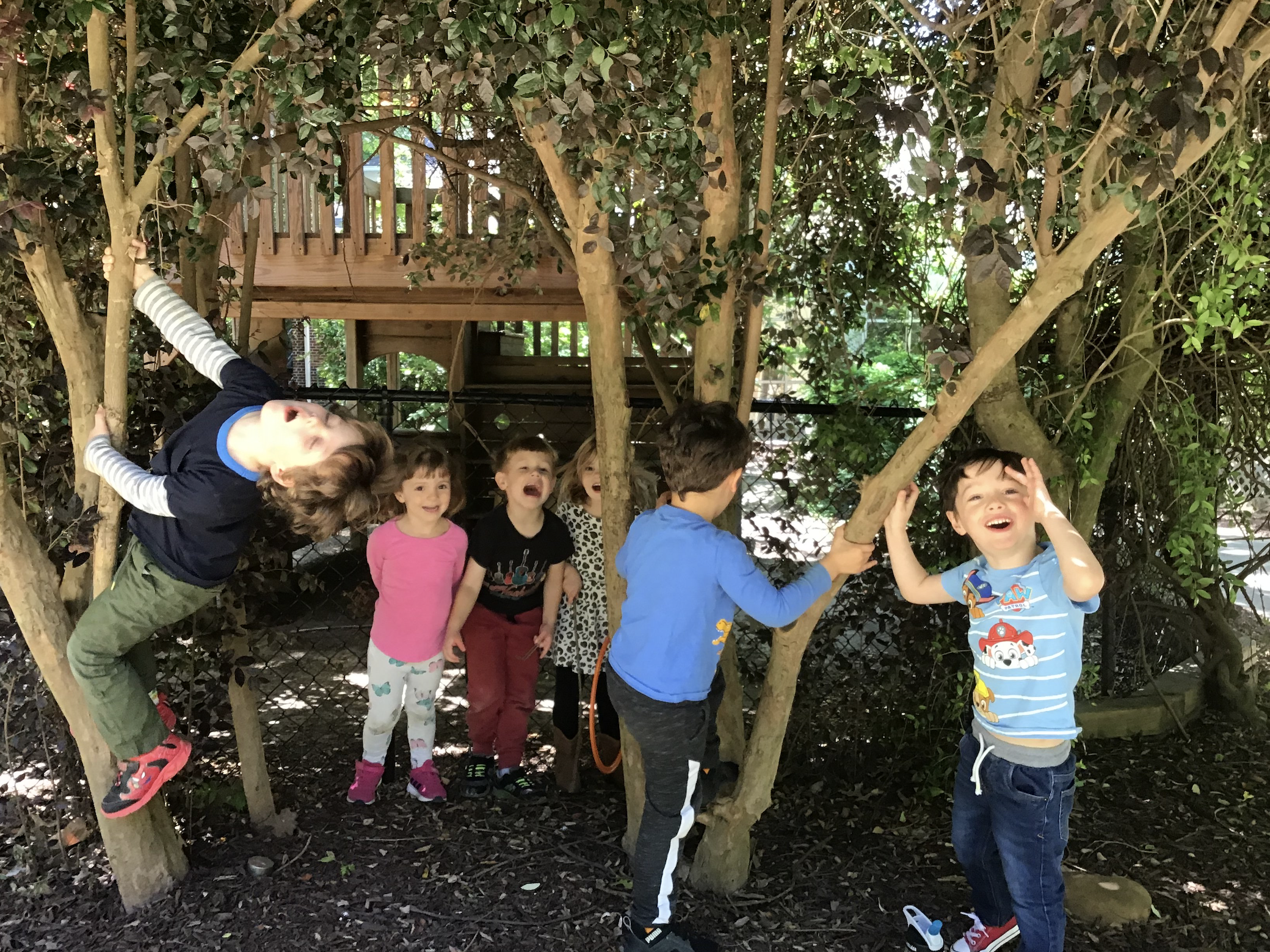
Tara Woolwine, Registered Nurse at Brookwood Baptist Health
“I work in a hospital in pre-op and everything has completely changed because of COVID-19. We screen every person at the door, no visitors are allowed — the hospital is under lockdown and we are constantly in PPE. The only surgeons we allow are for emergency or urgent situations, so the population of patients is much sicker. With me at work focusing on patient care, my husband is working a full-time job at home while trying to entertain and care for our 2-year-old. Now I am able to come to work and run our pre-op unit. Plus, my husband is able to focus on his work and Macy, our daughter, now has more developmental activities to grow and learn.”
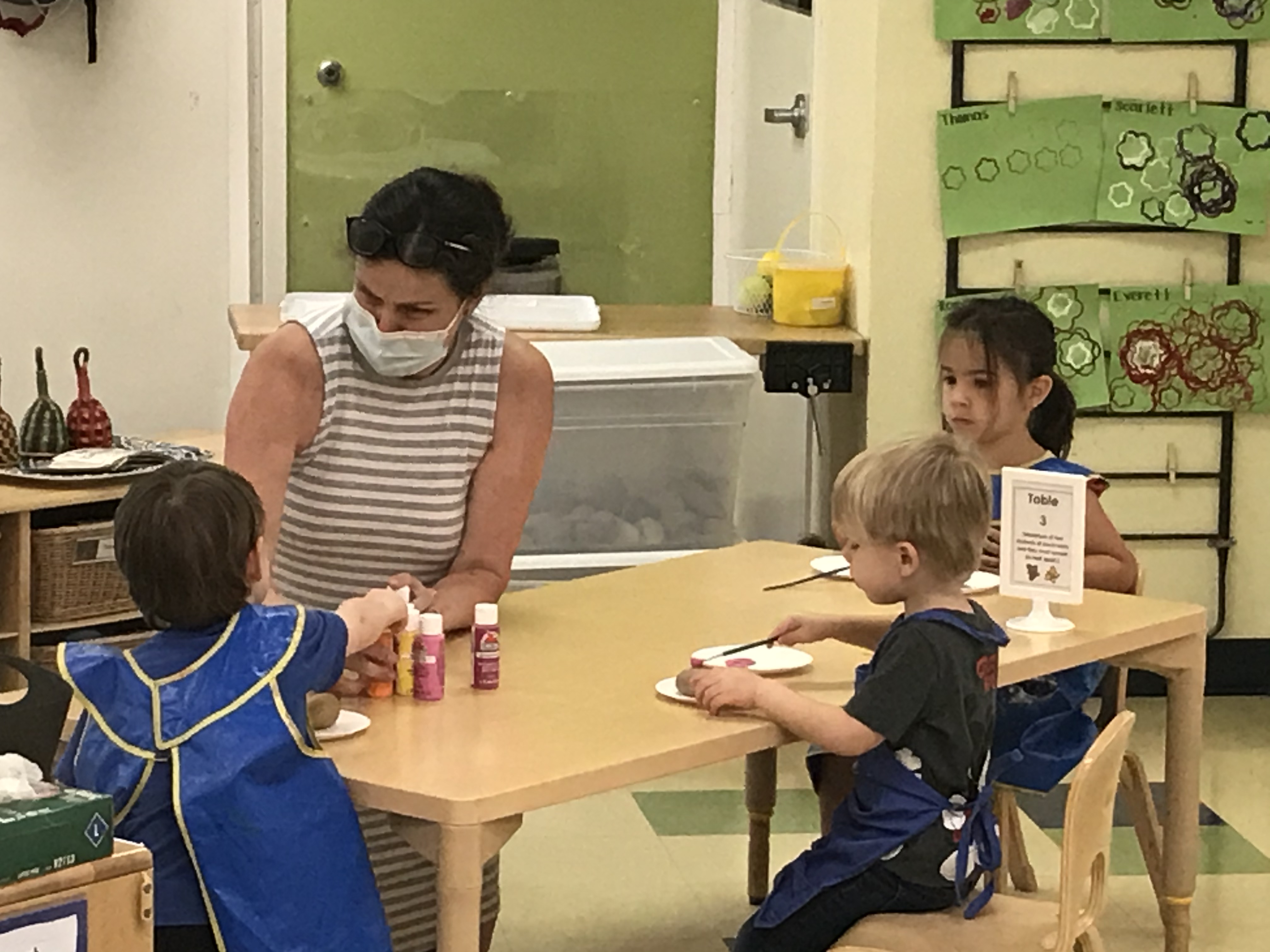
Gianna Fay, nurse practitioner in labor and delivery at Beaumont Royal Oak, Detroit. Gianna has a 1-year-old son and is currently pregnant with her second child. She and her husband are new to Detroit with no family in close proximity. “I would have to work no matter what. We would somehow bend and figure it all out, but there’s so much stress and pressure during this time. Without this, my husband would have needed to decrease his work which would have had an economic impact on us. Every day I have peace of mind.”
Stephanie Toll, cancer treatment, Children’s Hospital of Michigan. “My husband would have had to quit his job. Without this it would have changed what our financial, emotional, and social dynamic would have been. My husband was playing multiple roles at home as a full-time employee and full-time dad while I was at work. I was getting multiple frantic phone calls every 20 minutes while trying to navigate and take care of patients at work who were exceedingly worried, and a parent who was having to do two things at once. I take a deep sigh of relief knowing I can drop him off in the morning and he’s taken care of. I get a lot more done at work and my son is a lot happier. I breathe easier during the day, that’s for sure.”
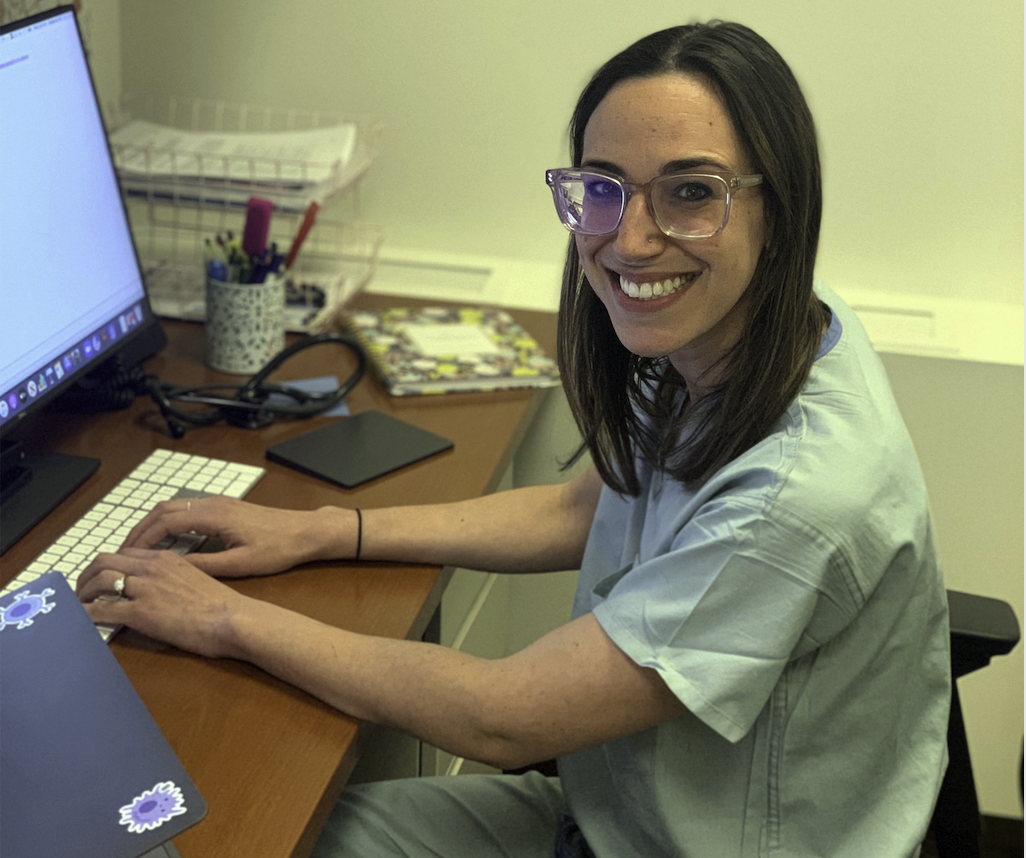
Kenyatta Hazlewood, nurse at Howard University Hospital. Hazelwood has a 5-year-old daughter, Zoe, and without Bright Horizons, she would not be able to work. “My daughter is out of school and we just didn’t have a place for her to go. As an essential employee, I needed this care.”
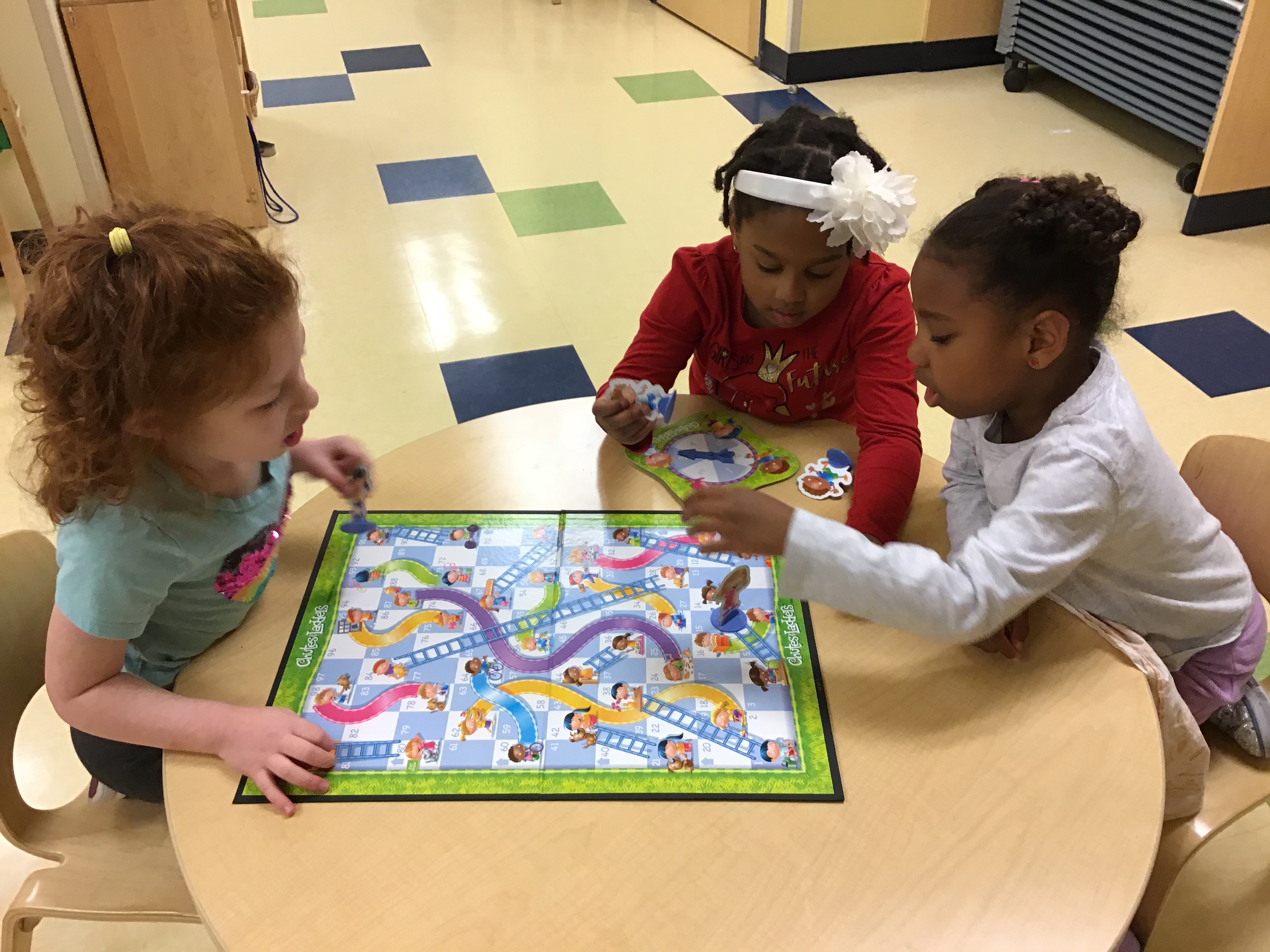
Shelby McDonald, program support for EMS in Michigan. McDonald is a single mother to her daughter, Hailey. She had no child care options and was not able to work. Without this program she was worried about feeding her children and paying her bills. “I can’t emphasize it enough, my stress level has gone down completely!”
Reggie Pope, lung transplant R.N. coordinator at U.W. Medical Center. “I am seven months pregnant, my husband and I are still working full-time. I’m one of only two lung transplant R.N. coordinators on staff helping manage and take care of 400 post-lung transplant patients considered high risk for acquiring COVID-19. I have way less stress and anxiety and find so much comfort knowing my son, Jackson (11 months old) has somewhere to go and is in excellent hands so I can continue to help my patients and my colleagues in this crisis.”
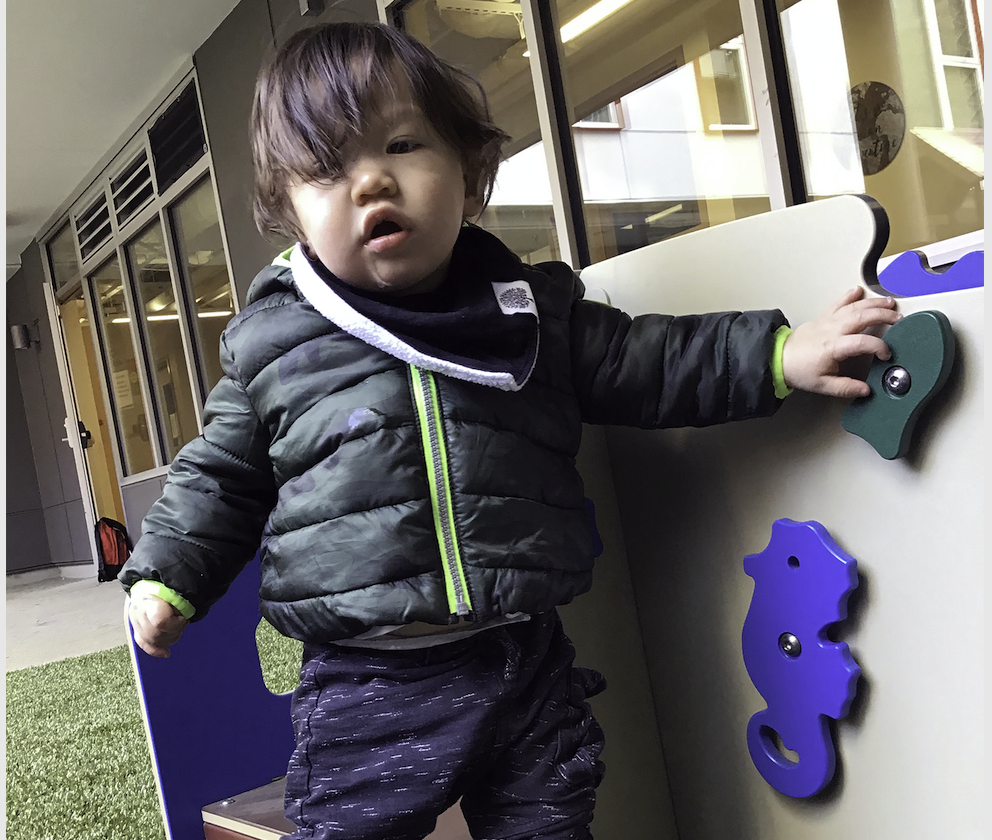
James Brennan, a trial specialist at Kellogg, Hansen, Todd, Figel & Frederick, and his wife Kathlea, an occupational therapist at MedStar National Rehabilitation Hospital. The parents of 19-month-old Roisin are both essential employees and were struggling to find people to care for their daughter. “This is quite a blessing. Our daughter had been out of daycare for the past three weeks, and we had been shuffling her around with family members and taking time off. We needed to give her a safe environment where she could start learning and growing. It allowed us to serve the community again and feel good about doing it.”
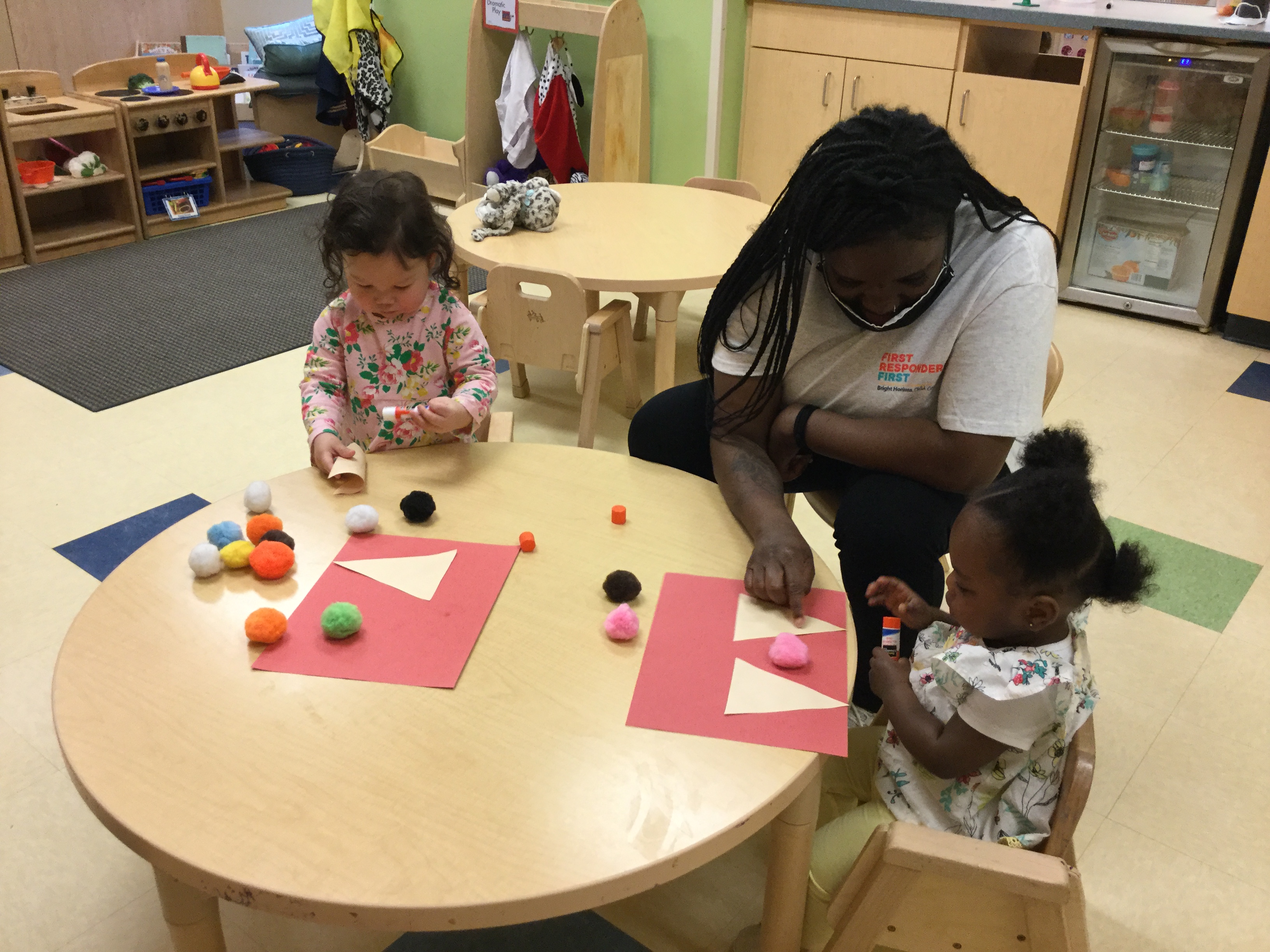
Marlene Aiello-Sugiyama, patient services specialist at U.W. Hall Health Center working to assess potential COVID-19 cases. “At this time I am the sole wage earner within my household. If this opportunity hadn’t been presented to me, I would have had to stop working, which is not an option. I feel extremely grateful because we would have had to pause our progress and goals as a family. I feel blessed and supported. Without this, I would feel alone and more isolated and frustrated.”
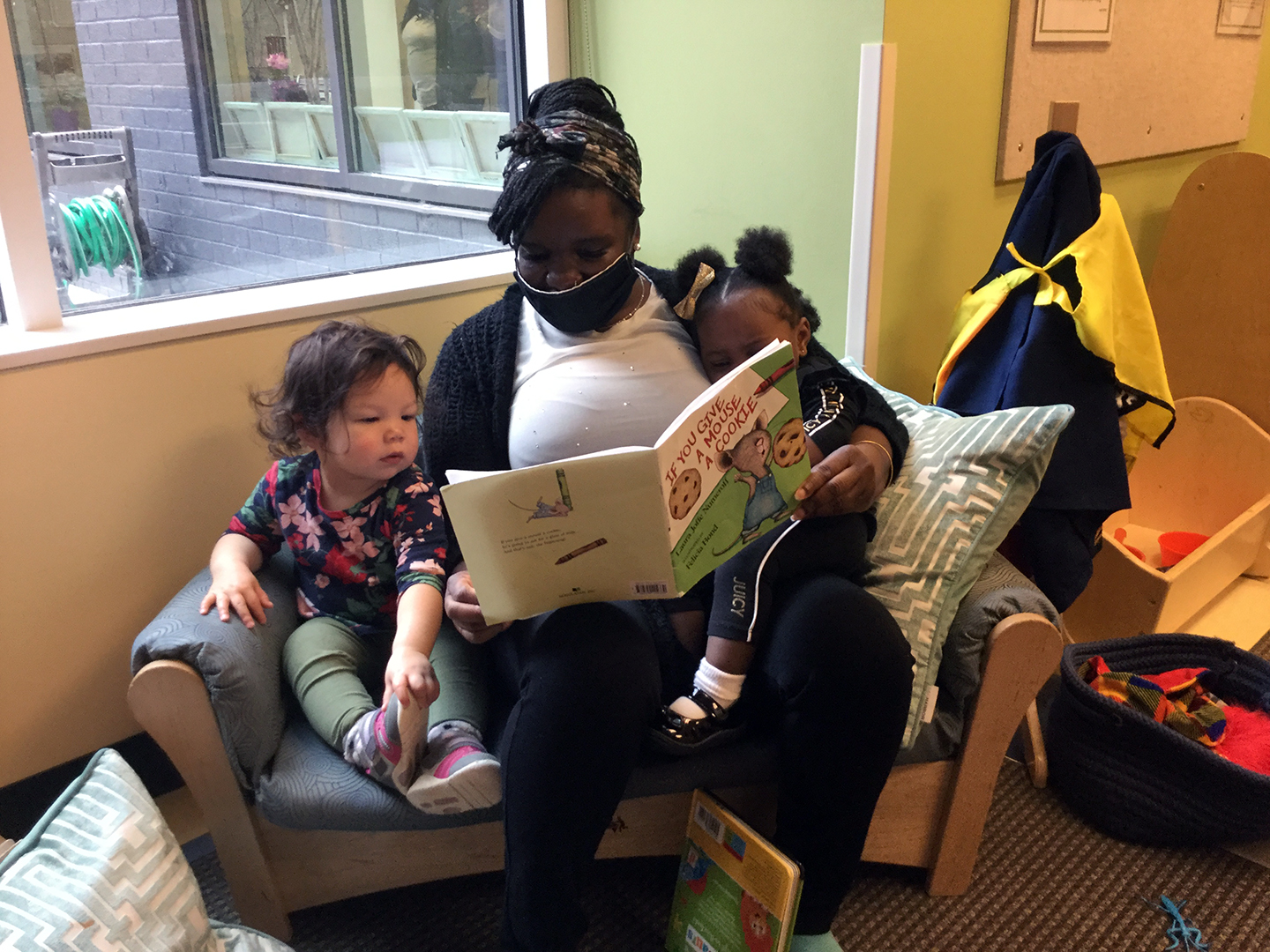
Addis Kassa, medical assistant at U.W. Medical Center: “I am a single mother and the first day the school was ordered to close, I had to miss work. On the second day, I used a neighbor to help, but with the social distancing mandate, we couldn’t continue. I am grateful for the help provided to healthcare workers and the ability to be at my work every day and do my part to provide services needed to those suffering.”
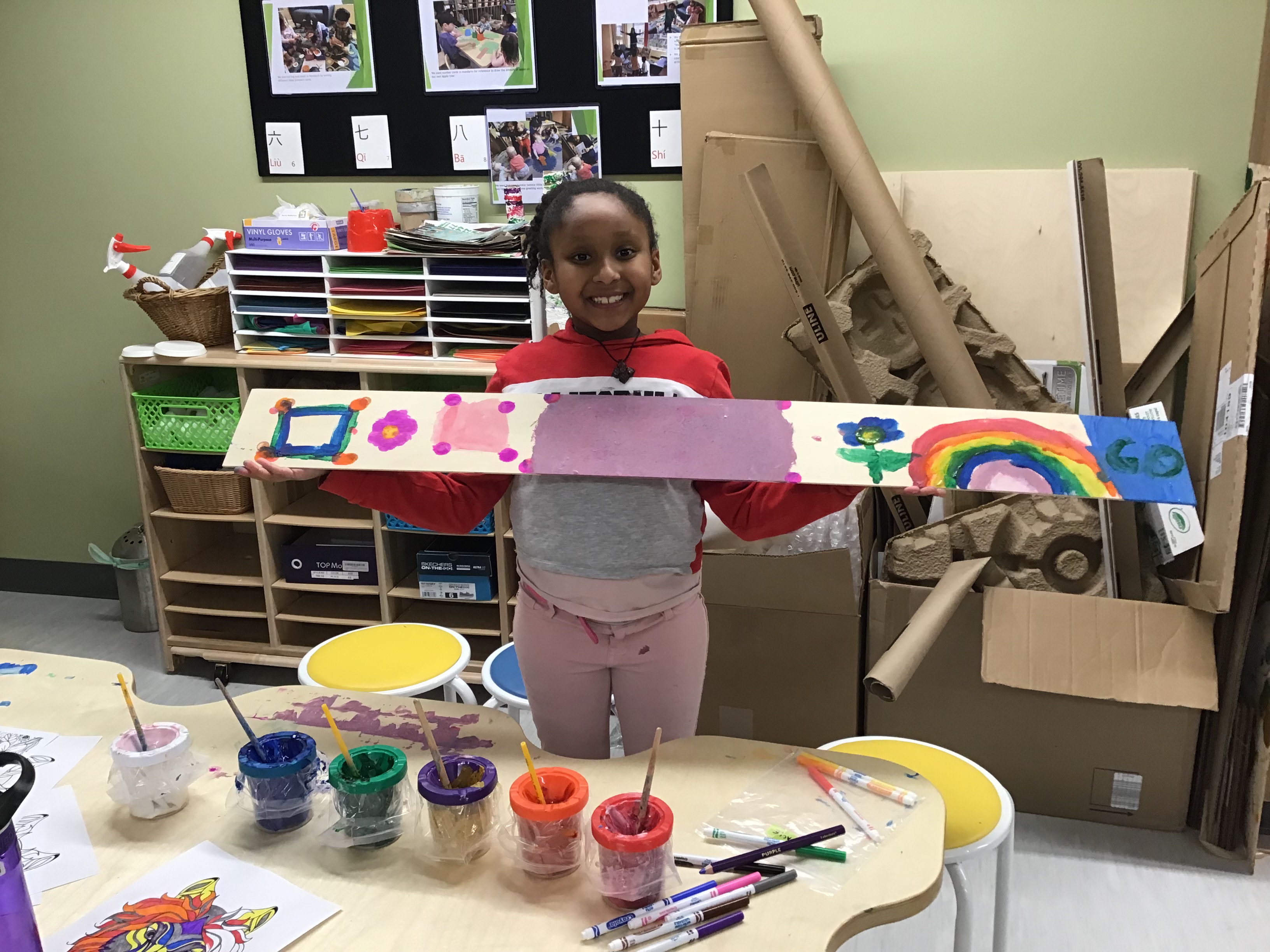
Shawnay “Tearra” Gibson, endoscopic technician at Georgetown Hospital: “I have two children and I didn’t have anyone to watch them, and it was affecting my work. When I called Bright Horizons about the program, they made it possible for me to drop off my kids that same day!”
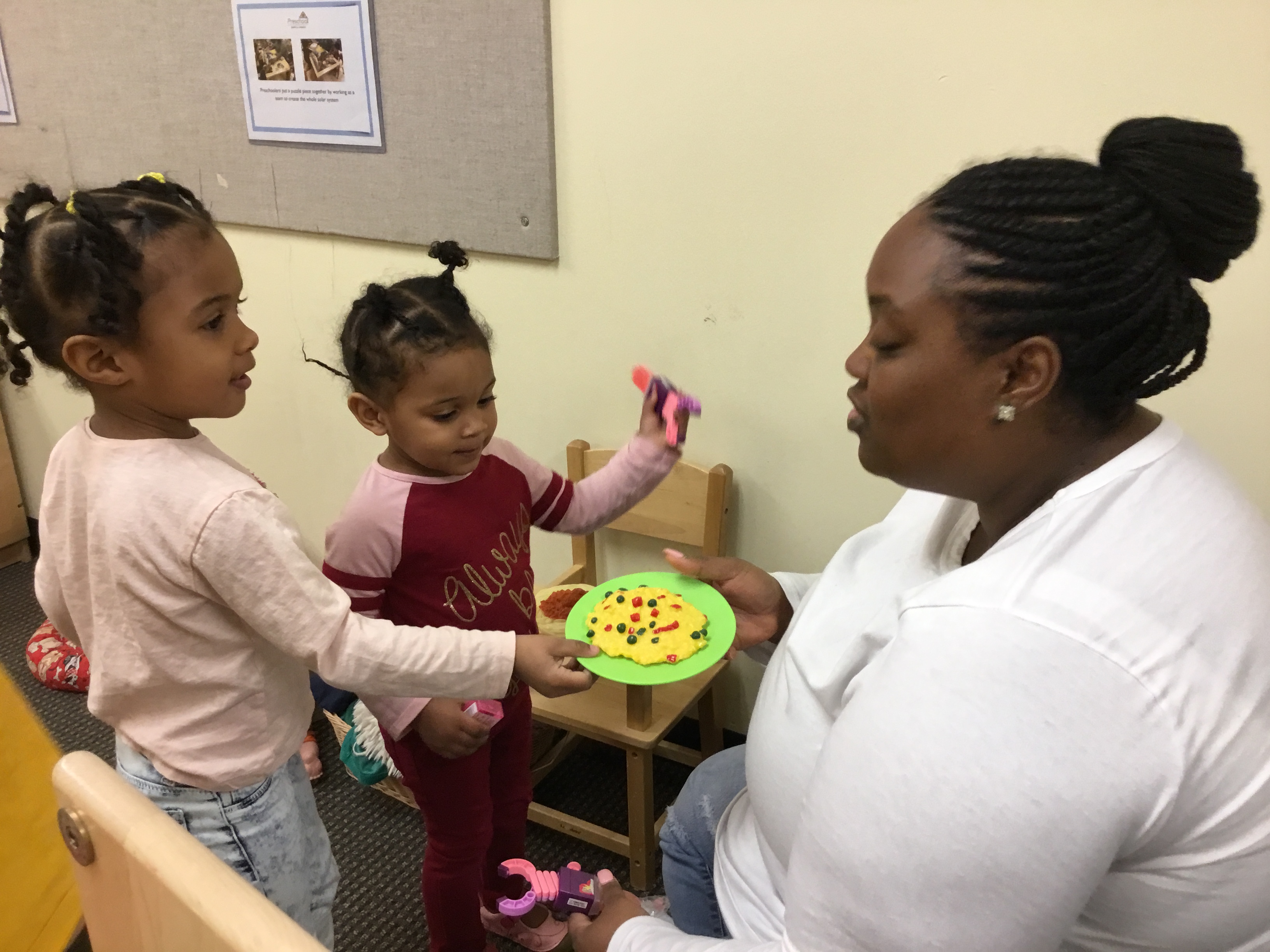
Sharlene Cooper, dialysis technician at Henry Ford Hospital: “I work 12-hour days and I had exhausted all other options for care. It was even more challenging because my husband is also a police officer and required to work. Today, I felt better because I knew my son was being taken care of — it really took the weight off.”
Sarah Bastawrous, radiologist at the V.A. hospital and University of Washington Hospital in Seattle: Bastawrous has two children, Mariella (age 2) and Anna Liza (age 6) and had to transition her children through different care options a total of seven times before finding Bright Horizons and #FirstRespondersFirst. Access to stable, consistent care has made a huge positive impact on not only her girls’ experience, but also Sarah’s own work.
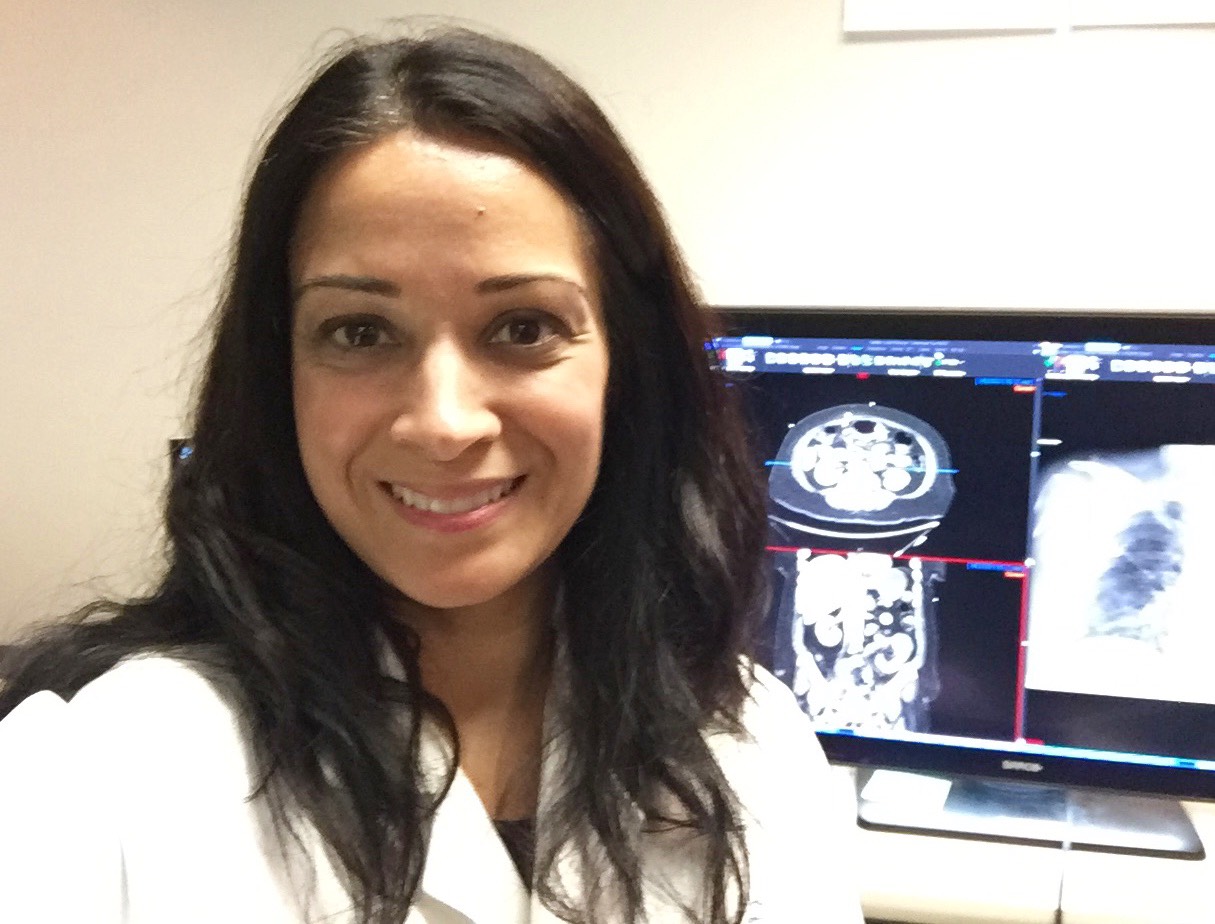
Kristy Elswick, police officer, Detroit Police Department: “My husband is also a first responder, and I am so appreciative I no longer have to call out of work. Life before Bright Horizons’ #FirstRespondersFirst was chaos, and now I finally have a safe place for my daughter to go.”
Click here for information about how Thrive Global is supporting our healthcare workers on the front lines of the coronavirus pandemic, and find out how you can support the cause by donating to #FirstRespondersFirst.


